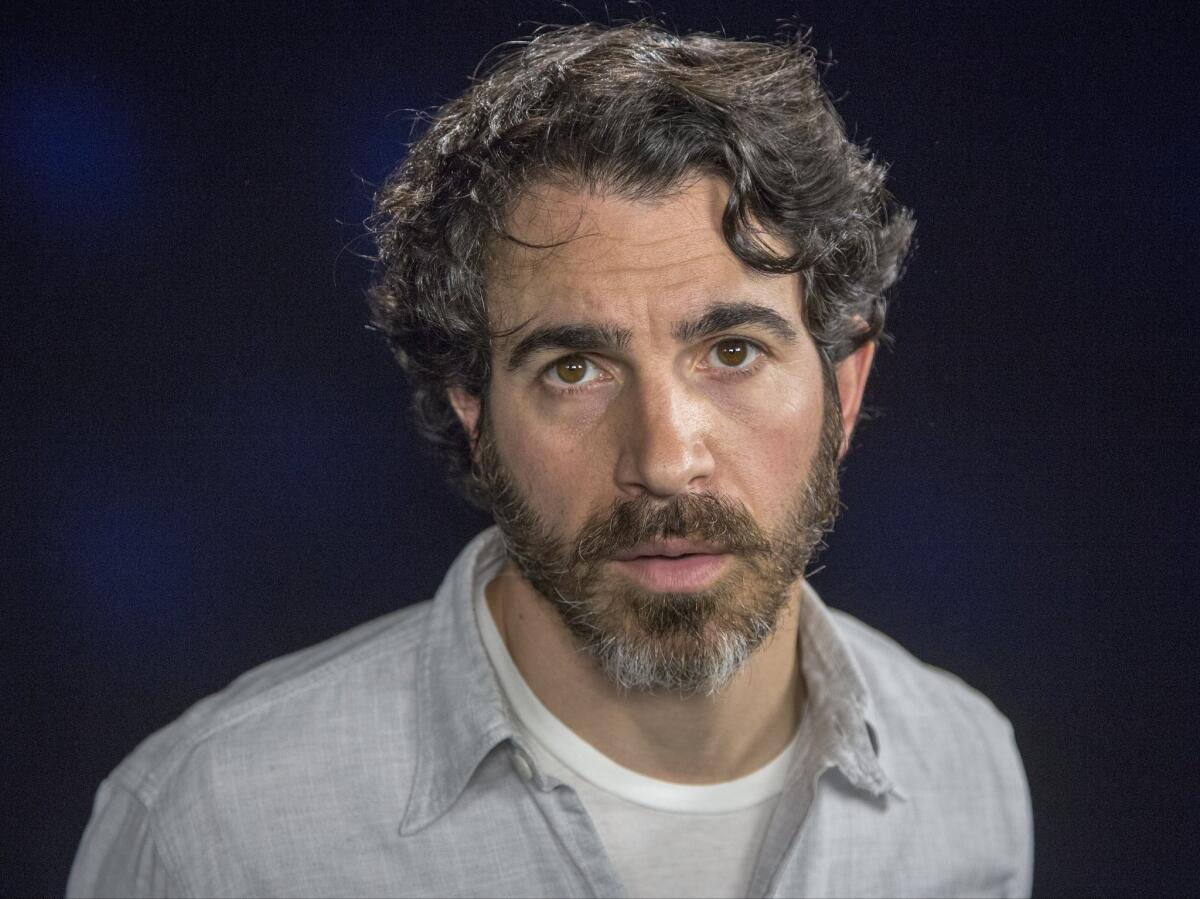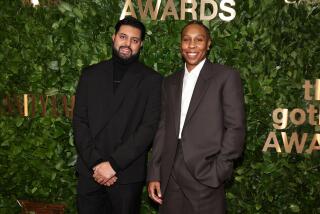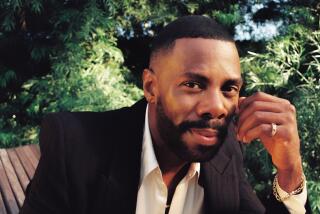For ‘Mindy Project’ star Chris Messina, a Cassavetes moment

Jon Stewart once quipped to Steve Buscemi that “Hollywood is contractually obligated to put [you] in one of every three films.”
The same might be said in recent years of Chris Messina. Since he broke out on “Six Feet Under” a decade ago as a buttoned-down lawyer with a big heart,” Messina has become a preeminent character actor, appearing in dozens of TV shows and movies. The roles are too numerous to count, but TV viewers will recall him playing the (again) suit-y executive Reese Lansing in “The Newsroom” and as workaholic OB-GYN Danny Castellano in “The Mindy Project.”
Messina makes his feature directing debut with “Alex of Venice,” a low-key Cassavetes-like drama starring Messina and Mary Elizabeth Winstead as a Venice couple dealing with the vicissitudes of life. It’s currently in theaters and on video on demand. We caught up with the actor-director on his career, his recent shift and an atypical filmmaking philosophy.
This film has a very quiet, humanist vibe. Characters’ problems — parents, children, grandparents, marriage, career — seem real because they’re handled without any melodrama. We almost have to adjust to the rhythms because we don’t see films much in this key these days, even in the indie world.
We’re in a different time. Everything is moving so quickly, even in our storytelling. But I thought it would be nice to slow people down, I thought it would be nice if you could just watch people going through changes and see if they could wiggle through the changes. I wanted an audience to be OK with the silence of a character’s journey.
How do you capture that? Is that something you can direct with the actors, or is it more intangible?
I talked to Coppola before I went to shoot the movie and he told me something interesting. He said, ‘do silent takes.’ You know, do something where people are doing the scene but not saying anything. And I did. And it can make people a little uncomfortable at first. But then you can catch that uncomfortableness. Or sometimes, if you’re lucky, they’d stop acting. And that’s the most beautiful thing you can capture on film.
Did you use those takes in the final cut?
Absolutely. A lot of the movie is cut from silent takes, actually.
How much resistance did you encounter trying to shoot them?
A lot of directors get to their first movie and they have to move quickly. I said from the beginning I didn’t want to rush. I made that clear to the actors. I’ve been waiting to direct for a long time, and I didn’t want to feel rushed. I mean, I felt rushed because it was a 21-day shoot. But every day when you’re in the scene, I said, let’s not rush through it. A lot of people might say that’s a pile of.… You gotta move. As a director you know what you want and move. But that’s one of the things I like, as both a director and as an actor an audience member, from the movies I love, like Cassavetes and Altman. It’s quiet and stillness.
Does that make you feel like a fish out of water as a filmmaker?
A lot of movies are kind of mixing genres now. Even independent movies. You’re getting moments of characters but they have to bend the genre. I liked ‘Whiplash’ but it’s a sports movie. It’s about a kid trying to be a drummer and a teacher who’s had this massive impact, but that movie is designed to make you feel like you’re in a sports movie. Something like “Alex of Venice” doesn’t mix genres at all, it’s a slice of life about these people at this particular time in their lives. You’d make a noisier film if Alex went on a killing spree. I think a lot of people end up there. But that’s not this film.
At the same time as you were making this you were shooting your Fox comedy “The Mindy Project.” How much of an adjustment was that to go between the two?
I don’t think I ever pictured myself doing a network comedy. I’ve always been a guest, not a regular. I’m used to coming and going. And I was a little intimidated by it for a while. But it’s also interesting to watch your character morph, to watch the writer as they have someone change, to watch yourself grow over time.
You’ve said that you find it amusing that you often get cast as the suit, as you were in “The Newsroom” and “Six Feet Under” and a number of other projects, even though that’s far from your background as an actor or a person.
It is funny to me. I grew up on the North Shore of Long Island. I dropped out of college after a semester. I worked on a lobster boat. And I started out off-Broadway playing drug dealers and really gritty types. But I don’t often get blue collar [in my film and TV roles]. Half the stuff I was saying on “The Newsroom” about running a company I’d have no … idea what I was saying. I’d have to pull my wife [the film producer Jennifer Todd] aside and say, “So what is it again? I’m running a company and what does this mean?”
To the outsider the idea of typecasting can seem like a pretty high-class problem. But I always wonder if it can be as frustrating a situation as anyone else who feels stifled by their career.
It really can be. There’s a whole host of characters that a select few people know I can do, and a large bunch of people have no clue I can do. It’s shifted but not quite as much as it needs to. But acting is like this. It’s just luck. Someone couldn’t get in the room, or they had to work a night job and couldn’t pay for acting classes. I happen to be one of the lucky ones who works. But I have an abusive relationship with it too. Sometimes it’s just like a mistress, and it … with your head. And sometimes it’s really kind to me and it works. Sometimes l feel like I have really have my finger on how do it. And then it just goes away and I feel like I’ve never done it.
Twitter: @ZeitchikLAT
More to Read
Only good movies
Get the Indie Focus newsletter, Mark Olsen's weekly guide to the world of cinema.
You may occasionally receive promotional content from the Los Angeles Times.







